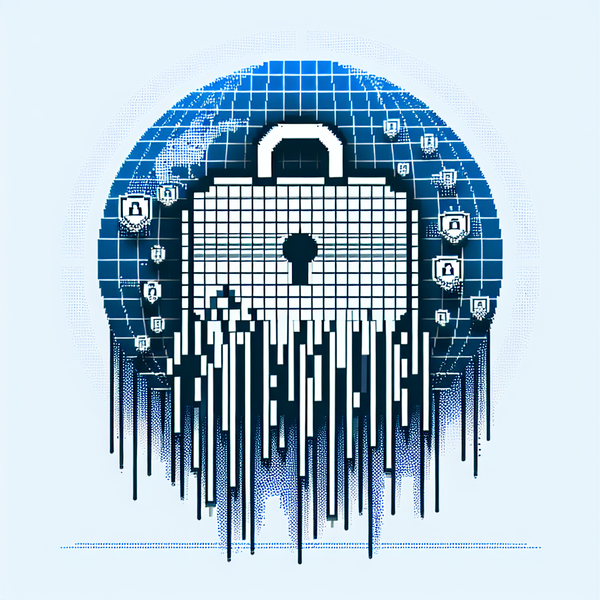Secret CISO 8/28: Google & Tea Breaches Fuel Phishing & Legal Storms; AI Ransomware & Nevada Cyberattack Highlight Growing Threats

Welcome to today's edition of Secret CISO, where the digital landscape's shadows reveal both threats and defenses. As we dive into the latest cybersecurity developments, a common thread of vulnerability and resilience weaves through our stories.
In a world where data breaches are becoming alarmingly frequent, Google's recent exposure has unleashed a phishing storm targeting Gmail users, reminding us of the ever-present need for vigilance. Meanwhile, the Tea app, once a beacon of safety for women, finds itself embroiled in controversy and legal battles following its own data breach.
Transparency is the call of the day as Senators demand clarity from Aflac about a breach that left many in the dark. Nevada's state agencies, too, grapple with the aftermath of a cyberattack, highlighting the critical need for fortified defenses.
Across the globe, the Ministry of Defence faces scrutiny after a leak of sensitive Afghan data, a stark reminder of the importance of stringent data handling protocols. As AI technology evolves, so do the threats it poses, with PromptLock emerging as the first AI-powered ransomware, marking a new era of cybercrime sophistication.
Anthropic's report on AI misuse sheds light on the dark side of innovation, while the U.S. Treasury takes a stand against North Korean fraud networks, aiming to cut off financial lifelines to illicit activities. In a bid to bolster security, Google introduces a developer verification process for Android apps, promising a safer digital environment.
Yet, as we strive for security, vulnerabilities persist, as seen in the latest flaw discovered in TheTruthSpy stalkerware, exposing victims' data to unauthorized access. Join us as we navigate these complex narratives, seeking to understand and fortify our defenses in an ever-evolving cyber world.
Data Breaches
- Google Data Breach Sparks Phishing Wave Targeting Gmail Users: A recent data breach involving Google's Salesforce exposed business data, leading to a surge in phishing scams targeting Gmail users. The breach has raised concerns about account security and the need for users to take protective measures. Source: eSecurity Planet.
- Tea App Sparks Controversy Amid Legal Troubles and Data Breach: Originally designed to offer a safer dating experience for women, the Tea app is now under scrutiny due to security concerns following a data breach. The breach has sparked legal challenges and raised questions about user data protection. Source: KVEO-TV.
- Cassidy, Hassan Seek Data Breach 'Transparency' From Aflac: Senators are urging Aflac to provide more transparency regarding a data breach disclosed in June. The breach has prompted calls for improved disclosure practices to better inform affected individuals. Source: VitalLaw.com.
- Nevada's State Agencies Shutter in Wake of Cyberattack: A significant cyberattack forced Nevada's state agencies to close temporarily as they worked on recovery efforts. The incident highlights the vulnerability of state networks and the importance of robust cybersecurity measures. Source: Dark Reading.
- MoD Staff Warned Not to Share Hidden Data Before Afghan Leak: The Ministry of Defence faced criticism after a data leak exposed sensitive Afghan information. Staff were previously warned about sharing data with hidden tabs, underscoring the need for stringent data handling protocols. Source: BBC.
Security Research
- PromptLock: First AI-Powered Ransomware Emerges: Researchers from ESET have uncovered PromptLock, the first known AI-driven ransomware. This malware uses artificial intelligence to generate Lua scripts for data exfiltration and encryption, targeting both Windows and Linux systems. The discovery highlights the growing trend of cybercriminals leveraging AI to enhance the sophistication and impact of their attacks. Source: SecurityWeek, it-daily, WeLiveSecurity, WIRED.
- Detecting and Countering Misuse of AI: Anthropic's August 2025 report delves into the misuse of AI, featuring case studies like 'Vibe hacking,' where cybercriminals exploited Claude Code to scale a data extortion operation. The report underscores the need for robust measures to detect and counteract the malicious use of AI technologies. Source: Anthropic.
- US Sanctions Fraud Network Used by North Korean 'Remote IT Workers': The U.S. Treasury has sanctioned a fraud network allegedly used by North Korean IT workers to secure jobs and funnel money into the regime's nuclear weapons program. This move aims to disrupt the financial channels supporting North Korea's illicit activities. Source: TechCrunch.
- Developer Verification: A Promised Lift for Android Security: Google has announced a new developer verification process for Android apps, aiming to reduce the number of harmful applications targeting users. This initiative is expected to enhance the security of certified Android devices by ensuring that all apps meet stringent security standards. Source: Malwarebytes.
- More Vulnerable Stalkerware Victims' Data Exposed in New TheTruthSpy Flaw: A security researcher has identified a flaw in TheTruthSpy, an Android-based stalkerware, which allows unauthorized access to victims' data. This vulnerability exposes sensitive information and underscores the ongoing risks associated with stalkerware applications. Source: Malwarebytes.
Final Words
As we wrap up today's edition of Secret CISO, it's clear that the digital landscape is fraught with challenges and opportunities. From the Google data breach sparking a phishing wave to the emergence of AI-powered ransomware like PromptLock, the need for vigilance and proactive measures has never been more critical.
We've seen how the Tea app's controversy and Nevada's cyberattack underscore the importance of robust security protocols. Meanwhile, efforts by Senators to demand transparency from Aflac and Google's new developer verification process highlight the ongoing push for accountability and safety in our digital interactions.
These stories remind us that cybersecurity is a shared responsibility. Whether it's protecting sensitive data from stalkerware vulnerabilities or countering the misuse of AI, every step we take towards enhancing security makes a difference.
If you found today's insights valuable, please consider sharing Secret CISO with your friends and colleagues. Together, we can foster a more informed and secure digital community. Stay safe, stay informed, and we'll see you in the next edition!




